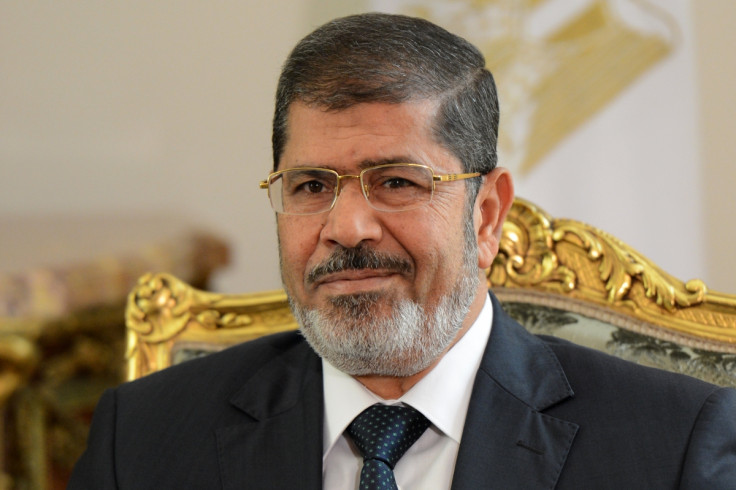Egyptian court sentences six to death and gives Mohammed Morsi another 40 years jail time
He has already been sentenced to death, but former Egyptian president Mohammed Morsi was handed a further 40 years behind bars in a separate trial in a case related to the leaking of state secrets to Qatar. Along with the death penalty, the former Muslim Brotherhood leader has already been sentenced to life and 20-years in prison.
Morsi was the case's top defendant in the trial, which saw six people sentenced to death, including two employees of the Qatar based TV network, Al-Jazeera, of passing of national security related documents to the station during Morsi's rule.
Along with two of his aides Morsi was sentenced to 25 years and he received an additional 15 years along with his secretary Amin el-Sirafy for a lesser crime. El-Sirafy's daughter Karima also received a 15-year sentence.
The judge identified the Al-Jazeera employees as Alaa Omar Mohammed and news editor Ibrahim Mohammed Helal as he sentenced them to death in absentia.
Described by the network as the former director of news on their Arabic channel, Helal told Al-Jazeera that he was "angered" by the verdict.
"What really annoyed me today was the intensive talk and the self-assurances given by the judge and how he was sure these people betrayed the nation," he said. "For me, the real betrayal of this nation is wasting its time and money in these silly things and fabricated cases."

He added that it was a "political case" and said they wanted to "threaten all journalists inside and outside of Egypt."
Alaa Sablan, who was an Al-Jazeera employee until last year, was also sentenced to death along with along with Asmaa al-Khateib, who worked for Rasd, a media network widely suspected of links to Morsi's Muslim Brotherhood. Neither were in Egypt and both were again tried in absentia.
The three other defendants sentenced to death on Saturday (18 June) are documentary producer Ahmed Afify, EgyptAir cabin crew member Mohammed Keilany and academic Ahmed Ismail.
Judge Mohammed Shirin Fahmy recommended the death sentence for the six on 7 May, but like most capital punishment cases in the country it had to be ratified by the office of Egypt's Grand Mufti – the nation's top Muslim theological authority.
Fahmy quoted the Mufti's office as saying the six had sought to harm the country when they passed to a foreign nation details of the army's deployment as well as reports prepared by intelligence agencies.
"They are more dangerous than spies, because spies are usually foreigners, but these are, regrettably, Egyptians who betrayed the trust," he said. "No ideology can ever justify the betrayal of one's country."
All of the verdicts can be appealed.
© Copyright IBTimes 2025. All rights reserved.



















